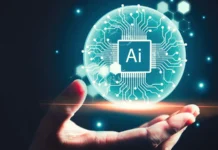Software and hardware are both used in artificial intelligence systems used in engineering. In addition to supporting smart production lines and complex manufacturing tasks, as machines advance, they will also be able to design and improve tasks over time with little to no human intervention thanks to machine learning. Automobile manufacturers have been using robots on the assembly line for a while now, and they have progressed from doing simple engineering duties to currently handling many precision motions needed for some of the most complicated elements of the process.
Higher Productivity
In the commercial sector, artificial intelligence has become essential. It is used to manage complex computing activities that need a lot of time and effort. The bot collaborates with seasoned legal professionals, clarifies legal words using an AI-based score system, and more by using machine learning techniques like deep learning and natural language processing to interpret and analyze legal texts. It also enables you to check that your contract is standard by comparing it to others in the same sector.
Access to expertise:
Developing and releasing a successful AI and machine learning application is a challenging process, and as we noted before, it is expensive to hire, educate, and support data science professionals. Businesses can locate and select specialists through outsourcing based on the requirements of their particular ML application.
Reduced development time and expense:
Outsource machine learning Services to qualify experts helps hasten the process of development and implementation. ML outsourcing firms and consultants typically concentrates on particular industries or applications. Therefore, there is a significant likelihood that they have already created models similar to these and possess the required expertise and resources. This spares businesses the time and expense of developing resources and experimenting with internal teams.
Better data management
Breaking down departmental silos and assisting in the efficient management of data so that insight can be drawn from it are two additional ways that artificial intelligence can support engineering tasks. Artificial intelligence (AI) programs can automate low-value tasks, freeing engineers to work on higher-value tasks. Machines will be crucial to assist with engineering judgment by utilizing machine learning to find patterns in the data. Gathering and working with massive datasets demands knowledge and effort in addition to model building. For instance, data labeling is a time-consuming and labor-intensive task that is essential to the creation of supervised learning models. AI businesses would possess the expertise to mine and transform the unprocessed data to make it useful and effective for the machine learning model.
Solves complex issues
AI has developed over time, moving from basic machine learning algorithms to more complex ideas like deep learning. The development of AI has aided businesses in resolving challenging problems including fraud detection, medical diagnosis, weather forecasting, and other things.
Engineering jobs like design and simulation are just a few that can be improved with the aid of artificial intelligence systems. Consider how Computer Aided Design (CAD) evolved from being an add-on tool for engineering to be an essential component of daily operations. With the use of these technologies, engineers will be better equipped to investigate hitherto unattainable design and weight-saving solutions.
One of the emerging technologies that are expanding the fastest today is artificial intelligence, which refers to machines that can carry out tasks that previously required human intelligence. It goes a step further thanks to machine learning. One of the most recent advancements in artificial intelligence and machine learning engineering helps learning by ingesting data, processing it, acting upon it, and then acquiring knowledge from the outcomes of that action.
















